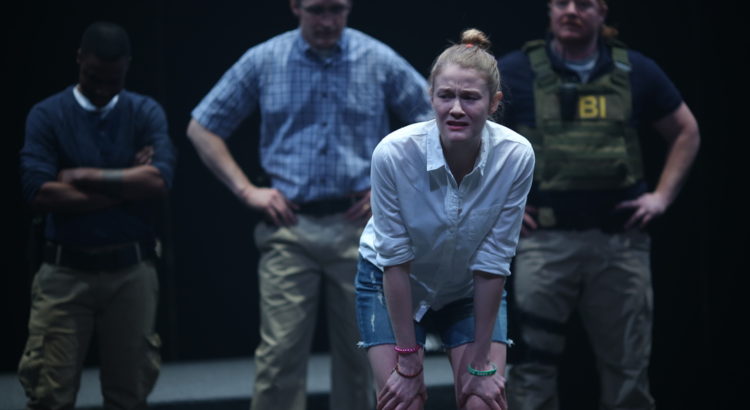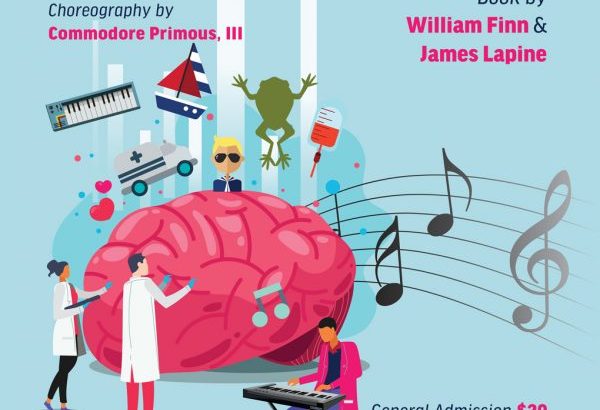Folk music is a broad spectrum, and there is no better showcase of that fact than The Ark’s Folk Fest. Folk is a process, an evolutionary music that is about the future as much as the past, all in the present moment. With Willy Porter emceeing the event again, he made the night go seamlessly as he shared wonderful stories and songs before introducing the next act.

Elliott BROOD kicked off the 43rd Annual Folk Fest with some very high energy. The Canadian group gave us the typical love song and bleak song, but their unique twist on it made the music refreshing nonetheless. Rainbow Girls followed, contrasting Elliott BROOD nicely. They gave me a postmodern jukebox vibe, as the three singers crowded around the microphone and sang their mesmerizing harmonies. Their extremely clever lyrics, especially in their “love” song, “Compassion to the nth Degree,” really captured the personality of the trio, proving that their music really tackles the pursuits of social justice. With a simple guitar, upright bass, or harmonica, Rainbow Girls really captured the human experience with their acoustic sound.
Cedric Burnside was the third act, and probably one of the performers that stood out the most to me. His unorthodox hill country blues music was very percussive and rhythmic, and his stellar guitar skills had a  stunning repetition and upbeat tempo that made you sway and tap your toes. He was very modest in his stage presence and did what he came to Ann Arbor to do—play amazing music. The Lone Bellow wrapped up the first half with music that was inventive and full of imagination. The trio also had stunning harmonies and a rich sound, particularly in their encore, “Loretta,” a chilling and touching song about lead singer Zach William’s daughter.
stunning repetition and upbeat tempo that made you sway and tap your toes. He was very modest in his stage presence and did what he came to Ann Arbor to do—play amazing music. The Lone Bellow wrapped up the first half with music that was inventive and full of imagination. The trio also had stunning harmonies and a rich sound, particularly in their encore, “Loretta,” a chilling and touching song about lead singer Zach William’s daughter.
After the intermission, Ingrid Michaelson came out. Her bubbly, lively personality resulted in her telling many stories and laughing during songs, especially when she forgot how her song “Miss America” began and she needed someone in the audience to Google the lyrics for her. Joined by Allie Moss onstage, with just a ukulele and a banjo, the usual upbeat pop take on her songs were toned down, to make it more appropriate for a folk fest. Nonetheless, she made the audience come alive through laughter and performed beautifully.
many stories and laughing during songs, especially when she forgot how her song “Miss America” began and she needed someone in the audience to Google the lyrics for her. Joined by Allie Moss onstage, with just a ukulele and a banjo, the usual upbeat pop take on her songs were toned down, to make it more appropriate for a folk fest. Nonetheless, she made the audience come alive through laughter and performed beautifully.
Calexico + Iron & Wine was the headliner, the final act of a long night. They knew they couldn’t compete with Ingrid’s jokes and personality, so they went about with their set. There were fascinating keyboard and upright bass solos, and the mix of sounds created a soulful and melancholic atmosphere that ended the night that was filled with fabulous folk music.









